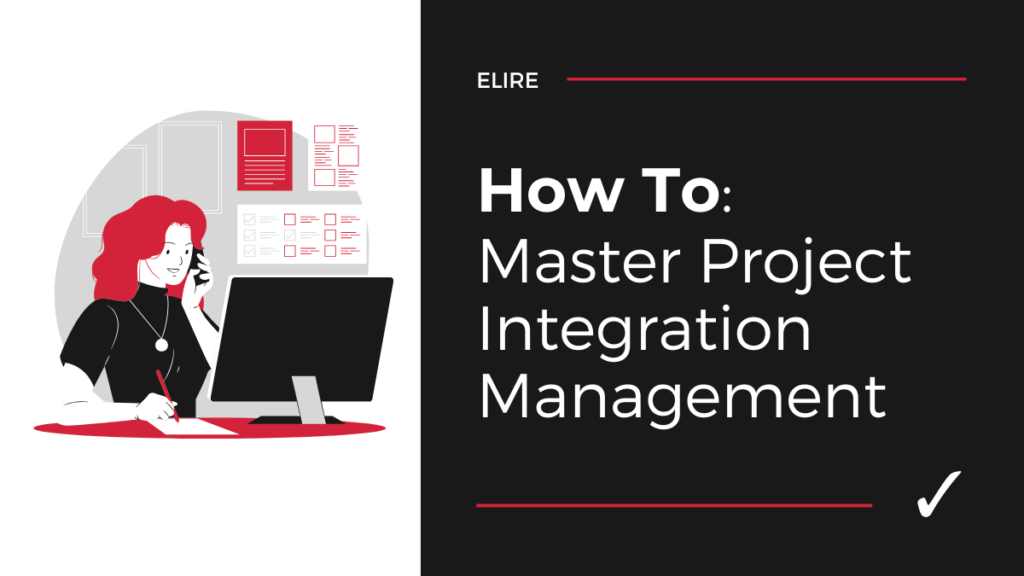
Project Integration Management is a key knowledge area identified by the PMI, focusing on ensuring that all elements of a project are properly coordinated and aligned, integrating processes, tasks, and resources to achieve the project’s objectives. It serves as the glue of a project to guarantee all parts come together seamlessly.
Proper Project Integration Management matters now more than ever as Cloud Implementations can evolve into complex multi-cross-functional team projects often burdened with the constraint of tight timelines and budgets. Without tactical Project Integration Management, even well-planned projects can start to crumble. A project that may be faltering can be brought back on track by going back to the basics, keeping PMI’s processes top of mind:
Initiating
Developing a clear Project Charter sets the foundation of an entire project. It serves as a resource to return to throughout every phase, outlining the scope, project objectives, and requirements. The Project Charter is a unified reference guide for each member of the project team, which is particularly important for Oracle Fusion Suite Implementations.
Planning
In the planning phase of an Oracle Fusion Cloud implementation, project integration management includes the creation of a comprehensive Project Plan. An effective Project Plan includes guidance from the Project Charter and acts as a roadmap for the scope, schedule, and resources. To facilitate effective collaboration and tracking, Elire utilizes the Smartsheet Project Management Suite. This tool can be tailored to specific project needs, and enhances project integration with centralized document storage, dynamic reporting, and real-time cross-sheet updates. These features ensure that all project components are aligned throughout the implementation lifecycle.
Executing
The executing phase is where planning meets actionable results with a focus on aligning people, processes, and tools. Oracle Cloud Implementations demand precise Project Integration Management to ensure cross- functional teams collaborate through configuration, development, and testing. Elire’s Smartsheet suite encompasses phase specific sheets and dashboards to facilitate collaboration and progress visibility.
During the Pilot phase, our Requirements Traceability Matrix is used to track configuration and business requirements, ensuring nothing is missed. It is critical to properly build this tool out, as it is a strong foundation through future testing and deployment phases. As the project transitions into testing, we leverage our Testing Plan which provides real time data to our Testing Dashboard to monitor metrics around execution status and defect resolution. Throughout the entire project lifecycle, we maintain an active RAID log to track risks, issues, actions, and decisions, providing project leadership with the visibility needed to escalate concerns and keep the project on schedule.
Central to Elire’s Project Integration Management approach is the project schedule. Built in Smartsheet, the schedule is fully developed with task dependencies, milestone tracking, and automation rules that streamline updates and highlight scheduling impacts. The project schedule syncs directly with the project dashboard, providing up-to-date status indicators used during client status reports. Through this connection, project leadership gains real-time visibility into progress across workstreams and can proactively identify tasks at risk of delay or scope creep. This alignment between schedule and reporting not only enhances accountability but also supports timely decision-making and ensures the project stays aligned with strategic objectives.
Monitoring + Controlling
In the Monitor and Control phase, Project Integration Management ensures that project execution remains aligned with business goals. Change control is a critical component, ensuring that modifications to scope, schedule, and budget align with stakeholder priorities and don’t infringe on project success. This process is essential to prevent scope creep, and ensures projects s go-live on schedule.
While formal Lessons Learned processes are completed during the closing phase, Elire has piloted phase-specific reviews that include reflective surveys and thematic analysis around what went well, areas for improvement, and recurring challenges. By gathering incremental feedback, we can make proactive adjustments mid-project to support project success and maintain open communication between all team members.
Closing
Finally, the Closing component of Project Integration Management ensures that all project activities are completed and approved, and the client is positioned for long-term success. A key focus during his phase is successful knowledge transfer with documentation and training materials. Through detailed transition planning, authentic communication, and formal handoffs, Elire establishes client confidence and its role as a trusted advisor.
Final Thoughts
Maintaining proper Project Integration management leads to successful project outcomes, fewer surprises, and satisfied stakeholders. When project complexity increases, return to the basics; focusing on team rapport, an effective project plan, and clear communication. Integration isn’t just about tools – it’s about balancing people, processes, and information so decisions are made to drive the project to success. For more information on how Elire can support your large-scale Oracle Cloud implementation, reach out to us here and request more information on our consulting services.
Author
-

Maggie Berg is an insightful, collaborative, and dedicated Project Manager, with 2+ years of experience in Project Management. She continues to show her strong ability to build project tools, manage timelines, and communicate effectively with stakeholders to ensure project objectives are met on time and within budget. Her experience with Oracle Cloud, Kyriba, and PeopleSoft implementations and upgrades and a passion for building strong and trusting relationships to move forward and reach team goals.
View all posts
